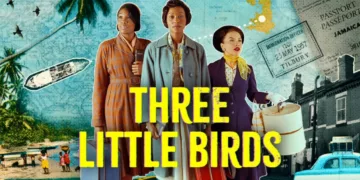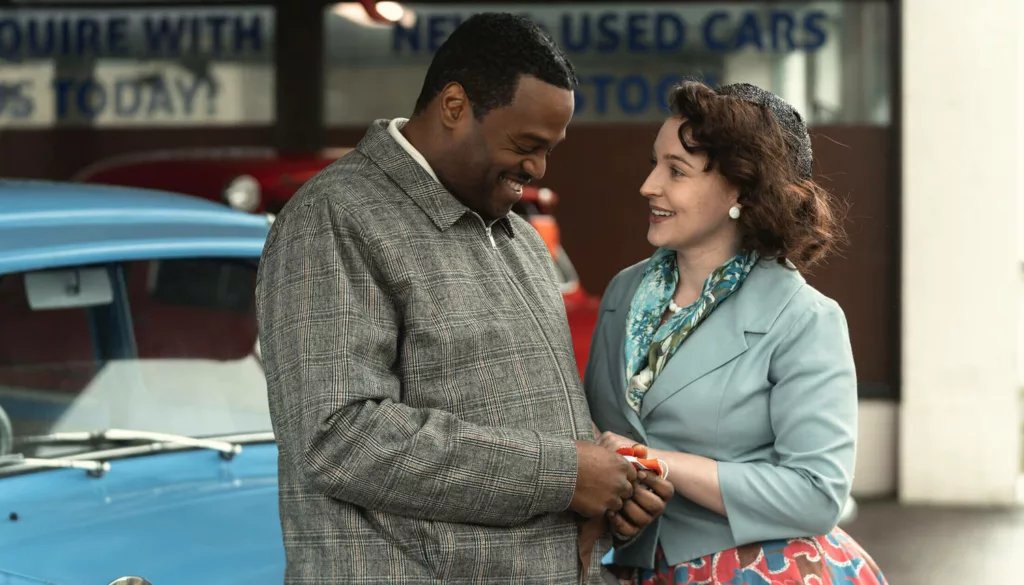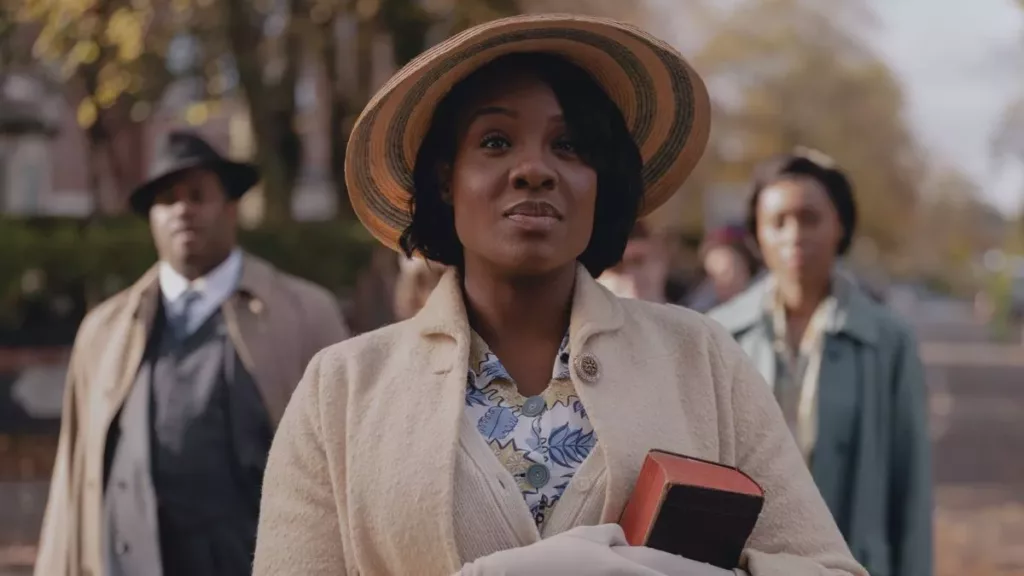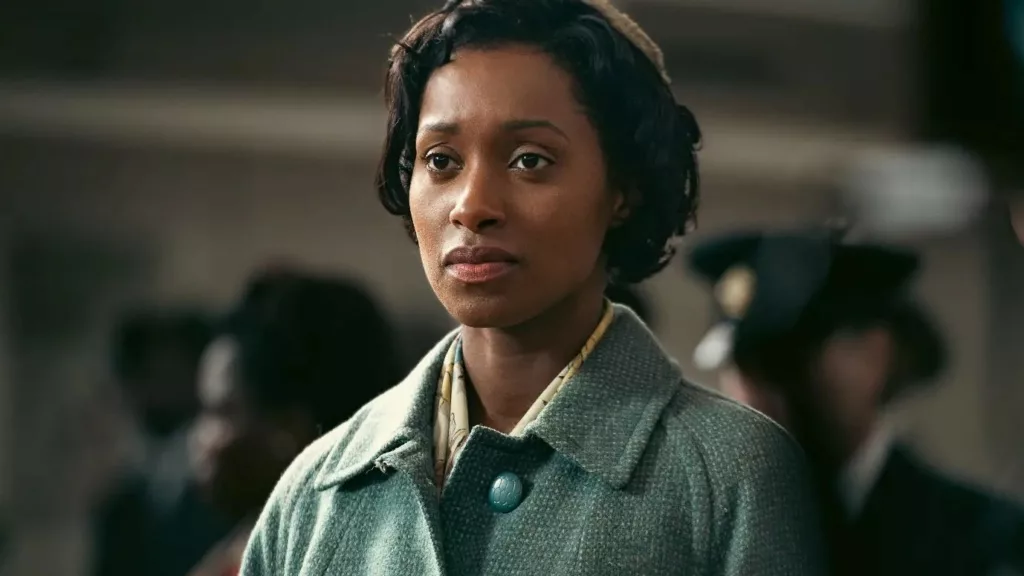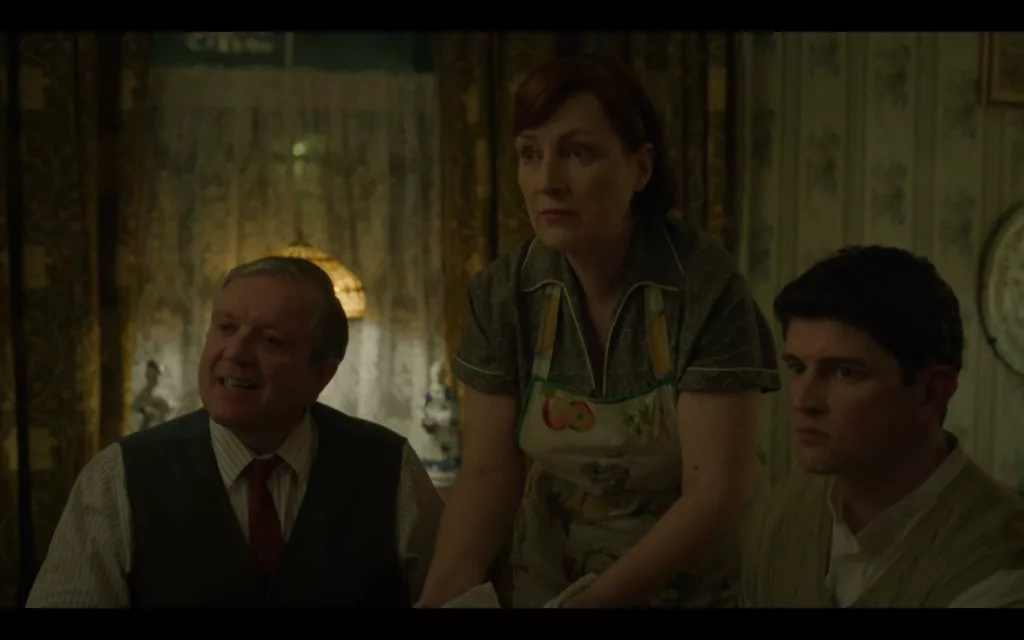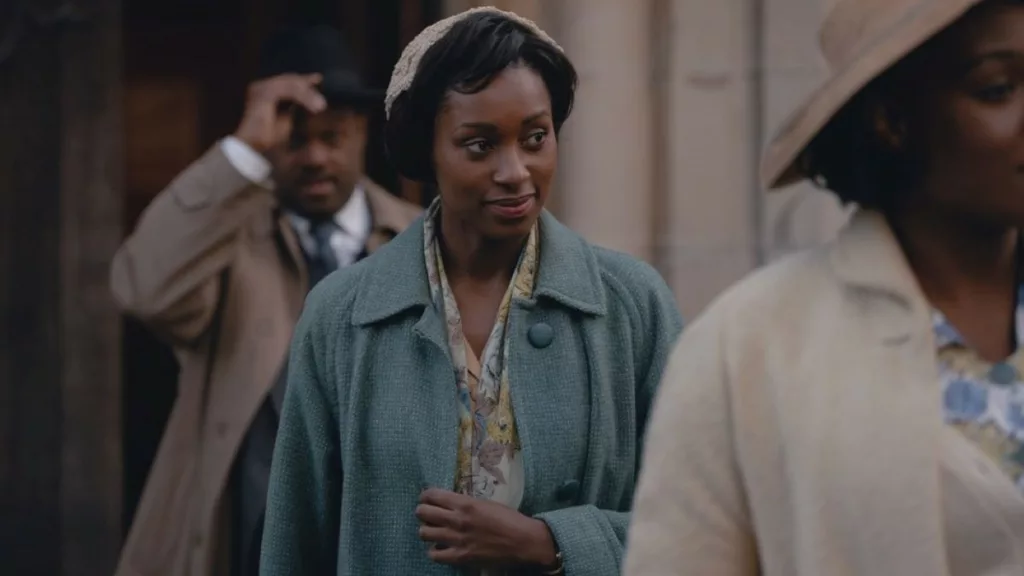Lenny Henry takes viewers on a profoundly personal journey with his new drama series Three Little Birds. As the writer and creative force behind the show, Henry draws directly from his own family’s experience immigrating from Jamaica to England in the late 1950s. Through vivid storytelling and compassionate character studies, he transports us right into the center of the Windrush generation and their struggle to build new lives in a surprisingly unwelcoming motherland.
We follow three young Jamaican women – friends Leah, Chantrelle, and Hosanna – as they sail across the ocean filled with hopes and dreams, only to face the harsh realities of racism, hardship, and shattered illusions on British shores. Henry based their stories closely on accounts from his own mother and others who made the same brave voyage for greater opportunity. But while the subject matter hits hard at times, Henry leavens the pain with humor and humanity. The excellent cast brings warmth and resiliency to their roles, finding sisterhood and community amidst the adversity.
Ultimately, Henry achieves an impressive balancing act with Three Little Birds. He shines an unflinching light on this troubled chapter of history while also honoring the courage and spirit of those who lived it. For viewers in 2024, it provides invaluable insight into the Windrush roots that still shape British culture today.
Resilient Women Anchored by Strong Performances
At the heart of Three Little Birds are three Jamaican women portrayed with grace and grit by a talented lead cast. Rochelle Neil brings a quiet intensity to the role of Leah, a mother fleeing from an abusive marriage who leaves her children behind, clinging to the desperate hope of a better life in England. Neil captures her strength as well as her vulnerability, as Leah confronts not only racism but her own guilt and trauma.
Saffron Coomber infuses bubbly optimism into the character of Chantrelle, hungry to become a movie star yet naively unprepared for the cruelty of others once she arrives. Coomber allows us to feel sympathy for Chantrelle rather than judgment as her effervescent spirit gets tested but never broken.
And Yazmin Belo gives a standout performance as the pastor’s daughter Hosanna, whose religious piety mixes with a frank boldness as she pieces together her place as an immigrant searching for love. Belo’s scenes spark with wit and wisdom.
These three actresses have a chemistry that leaps off the screen through joy and sorrow, sisterhood and solitude. Their performances carry the show, just as their real-life counterparts bore the load of paving the way for generations to come. They make us want to keep following Leah, Chantrelle and Hosanna wherever turbulent winds may blow them next.
“Savor the sweetness of life’s fleeting moments in our My Favourite Cake review. Join Mahin on her journey of rediscovery and defiance against the backdrop of Iran’s societal constraints.”
Navigating Rough Waters
Three Little Birds plunges viewers directly into the tumultuous era of the Windrush generation with unflinching honesty. We witness the naked racism and oppression that greeted Caribbean immigrants at nearly every turn in 1950s England, shattering any idealized notions of the “motherland.” Henry refuses to sanitize this painful history. The age of empire has ended, but its superiority complex and racial hierarchies remain fully intact across British society.
The show captures this with bracing authenticity, from the overt discrimination of “No Blacks, No Dogs, No Irish” signs to violent anti-immigrant riots fueled by xenophobia and lies. More subtle microaggressions also pervade daily life, whether in the workplace or neighborhood. The three leads bear the humiliation with grace and grit.
Yet the show finds nuance within the broader struggles. Kind citizens lend a hand, such as the sympathetic pub owner who tries to serve Black customers despite threats. Complex characters like Leah’s brother Aston introduce moral shades of grey with his pursuit of social status over family bonds. Even the police range from cruel aggressors to reluctant participants during the upheaval.
Moments of joy and community offer cleansing reprieves before the next indignity arises – the blues dance party that reminds them of home, a romantic connection that crosses color lines, the humor and heritage they carry with them through stormy straits.
The specifics resonate as universally human while underscoring the unique barrier Black immigrants faced in forging their identity as British citizens. Henry and the excellent writing team perfectly capture the simmering contradictions and turmoil of the times. They remind us how the past shaped the present we inhabit now.
“Explore two decades of friendship, love, and missed opportunities in our One Day review. This series will tug at your heartstrings with its portrayal of Emma and Dexter’s bittersweet journey. Perfect for those who cherish stories of love and life’s what-ifs.”
Riding the Emotional Waves
Three Little Birds employs some risky narrative devices that ultimately pay off in powerful ways. The frequent use of flashbacks showing the women’s former lives in Jamaica helps deepen the characters and raise the stakes once in England. While initially jarring, these glimpses into their hopes and heartbreaks back home heighten the sense of displacement when confronted with post-colonial British racism. The nonlinear storytelling mirrors the process of piecing together fragmented lives across vast distances.
The plot confidently interweaves the different story threads into a cohesive journey. Hosanna contends with her brother Aston’s deception about his looks and status as her suitor, while trying to reconcile her pious upbringing with new awakenings. Chantrelle attempts to maintain her dignity while serving the wealthy family that sees her as an exotic accessory. Leah struggles to support those she left behind as she builds her own foundation. Romances bloom and betrayals cut deep.
It all flows together organically, never forcing connections yet always reminding us of the through-lines of sisterhood and systemic oppression that bind their experiences. The final montage feels well-earned, with each woman finding some resolution – if not outright triumph – over the forces against her. Their pride and determination shine through after being tested but never broken.
In mirroring the ebbs and flows of difficult journeys, Three Little Birds finds its stride to deliver captivating drama. The payoff builds episode by episode until we must root for these remarkable women to write their own hopeful futures, on their own terms.
Navigating Turbulent Seas
At its core, Three Little Birds is a study in resilience – how we cope when the world dashes our highest hopes. For Leah, Chantrelle, and Hosanna, building lives in England after dreaming of opportunity requires fortifying the soul against countless indignities. Through the intimate lens of their stories, larger themes come into sharp focus.
The ugly prevalence of racism in 1950s Britain leaves indelible scars on its victims while also indicting its perpetrators. The show lays bare the ignorance and cruelty fueled by xenophobia, bigotry, and undeserved superiority. Yet it also shows flares of light – everyday people pushing for justice, empathetic bonding despite divides. It is not a simplistic portrayal.
There is also a fierce current of female empowerment running through each story. Economics and abuse may have displaced them, but they claim authority over their futures once landed on foreign shores. They draw strength from friendship, humor, heritage and hope despite the sexism still embedded in this supposed “motherland.”
At its best, Three Little Birds serves as a parable – using the past to illuminate the present. The particulars around immigration and race relations may evolve, but the importance of equality, empathy and courage to fly above adversity does not. By bearing witness to these women fighting to soar, we gain our own wings for the long journey toward justice. Their grace glides across decades into our hearts.
Transporting Viewers in Time and Place
While the emotional power of Three Little Birds centers on the characters, the show’s production quality further envelops us within 1950s England and Jamaica. Careful period detail in the set design and costuming immediately sets the scene – we are dropped into vibrant Caribbean party one minute, a dreary British housing estate the next.
The production team took great care to create visual authenticity. However, the show avoids getting bogged down in pure nostalgia. A slightly muted color palette and gritty texture when filming the English locations enhances the sense of gloom and erosion of optimism. The aesthetic mirrors the weariness seeping into the immigrants’ hearts.
Yet cinematography and lighting switches to a warmer, more hopeful tone for scenes celebrating the vibrant cultures these women brought with them. Backyard island get-togethers pulse with color and mischief. The juxtaposition reminds that joy and pain often flow together in the diaspora experience.
The script similarly weaves in era-appropriate music, ranging from ska to boogie to snippets of Caribbean lullabies. Songs become touchstones for characters and viewer alike, amplifying both memory and meaning.
All these craft elements meld together into an immersive world that transcends time and place to speak truth. We inhale the same damp English air that deflates their Jamaican dreams, swelling our empathy.
A Timeless Triumph
With Three Little Birds, Lenny Henry has crafted a poignant drama that soars above expectations. While clearly personal to his own family’s immigration story, the show resonates as a universal human tale of courage and community against oppression. It bears necessary witness to the ugly racism confronting Windrush arrivals in England while highlighting the hope, humor and resilience buoying them forward.
The excellent writing gracefully balances weighty themes and intimate perspectives. Meanwhile, Henry’s decision to focus on three dynamic female leads pays off beautifully thanks to magnetic performances and seamlessly interwoven story arcs. Authentic period details immerse viewers within the pre-Swinging Sixties diaspora experience without ever sliding into cliché.
There are minor imperfections that some viewers may get snagged on. The pacing slows at times when lingering too long on flashbacks. Some plot lines feel unresolved. A few moments tilt toward melodramatic. But these are small quibbles that barely diminish the overall power of this expertly realized production.
Ultimately, Three Little Birds soars by reminding us of our shared bonds despite divisions. It advocates for justice by surfacing ugly truths from the past so often brushed aside. Most of all, it celebrates the women and men whose shoulders we stand upon today in all their spirited complexity. Just like the classic song it references, this is one triumphant tribute that will echo through the ages.
The Review
Three Little Birds
With grace, wisdom and passion, Three Little Birds brings history into full flight. Lenny Henry has crafted an intimate epic that pays tribute to the Windrush generation while shining an indicting light on the racism they endured. Thanks to magnetic performances and thoughtful storytelling, their spirit soars off the screen to remind us how the past forever shapes the present. This is compelling television that resonates loudly for our current times.
PROS
- Powerful acting from the female leads
- Important spotlight on the Windrush generation experiences
- Balances heavy themes well with levity and humanity
- Authentic period details in sets, costumes, music etc.
- Resonates strongly with timely social justice issues
- Lenny Henry brings a personal touch as creator/writer
CONS
- Uneven pacing and some dangling plot threads
- Could have pushed harder on difficult subject matter
- Supporting characters less developed
- Ending montage feels a bit rushed
- Doesn't fully depict evolution of music over time
